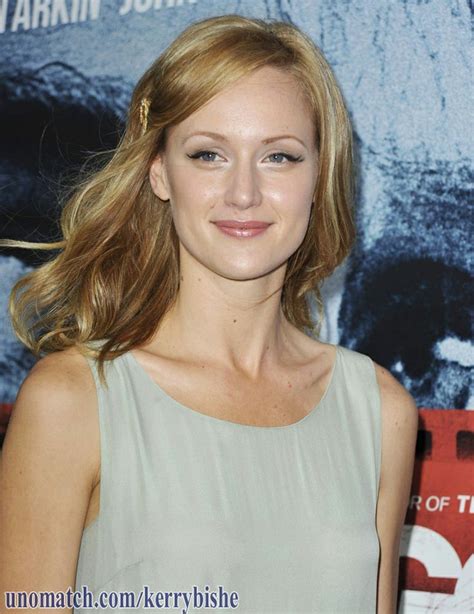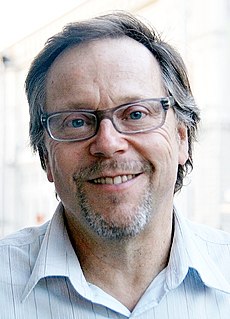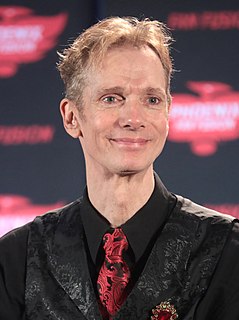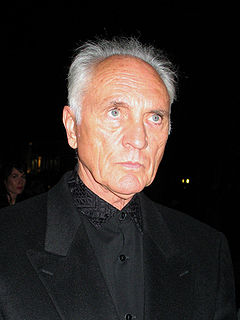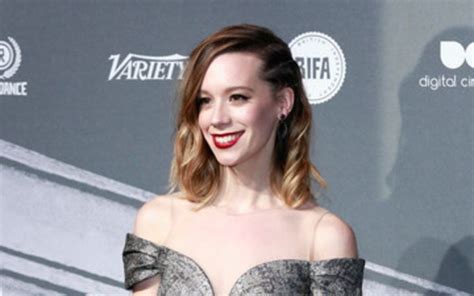A Quote by Kerry Bishe
I did a lot of theater, so especially as an on-camera camera actor, there are so many things that aren't in your toolbox. They're somebody else's job. You think about editors and rhythm. Volume isn't even in your control.
Related Quotes
Of course, you can never watch something like somebody else watches something like you, but nonetheless, you have to try. So I think on camera you learn a lot about how much the camera does for you, which is what is the great luxury of movie acting. Or acting whether it's TV or movies or whatever it is, that the camera's really such a gift because there's so much that it sees and does if you're willing to just be open and expose yourself and all of that. So you also learn what doesn't matter. And sometimes when you think about things, you think things matter that don't matter.
In the theater, you're so much more in charge as an actor. For better or for worse, you know what the audience is seeing. But you can be acting your socks off on film, and then you see the movie, and the camera is on the other actor, or they've cut out the lines you thought were significant, or they've adjusted the plot. So much of it is out of your control.
A huge part of what we do as actors is learning to ignore the camera, as if it's not even there, while simultaneously being very aware of the camera and what it's capturing, because you can give the best performance of your life, but if you do it with the back of your head facing the camera, it's going to get cut from the movie.
You have to communicate on a much greater scale. With a camera, you can use the flick of an eye. On stage, a lot of other things are happening that can pull focus or energy. You're always thinking the same way, but you have to amplify your thoughts with the volume of your speech and the ways you use your whole body to communicate what you're feeling. It's a little bit different from film.
I think movies say a lot [about real life], even more than theater. It says a lot about the invisible, that movies are so fascinating. The camera lens is like a microscope that goes beyond the surface. It's like you're exploring a secret, so you explore the director's secret, you explore the actor's secret, and therefore you explore the universe's secrets.
